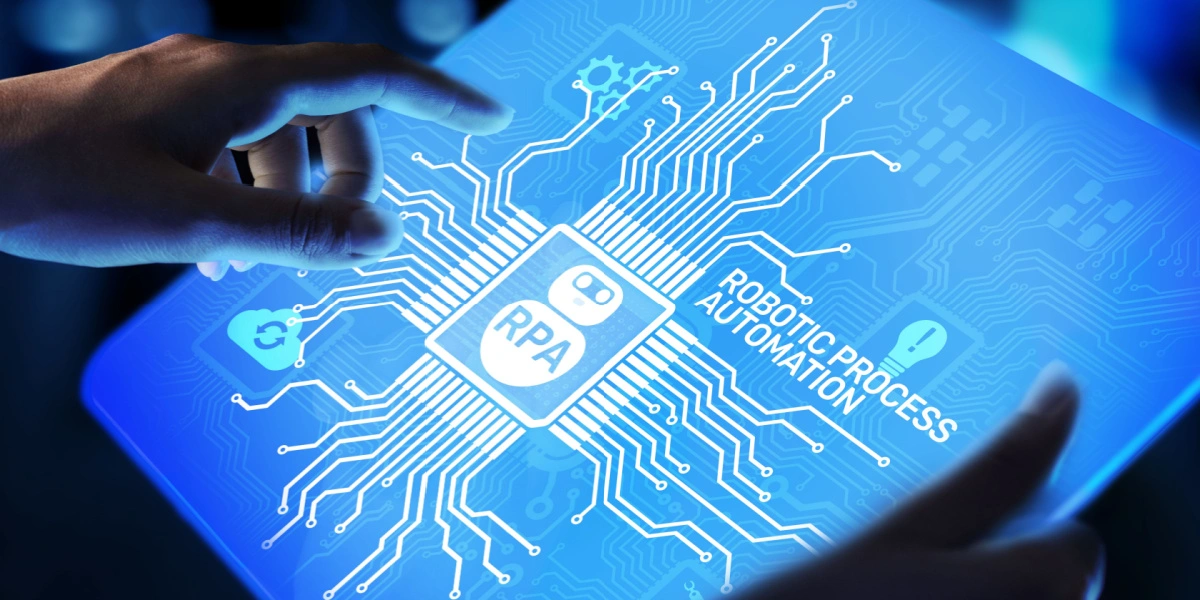
Apr 13, 2023
Blog Digital World Hannover Messe 2023: Key examples of Robotic Process Automation
Industries the world over are transforming to meet the needs of future generations. The population is expanding, which means processes must be refined, enhanced, and optimized. Automation technology, specifically Robotic Process Automation (RPA), is at the core of these changes, allowing businesses to use software-driven robots to automate routine activities. As a result, human labor is minimized so that employees can focus their efforts on more impactful work.
Hannover Messe is shining a spotlight on the entire automation technology spectrum, offering companies a global platform to share and discuss innovations within the sector. BCC Research is thrilled to be attending 2023’s event, in a bid to witness first-hand burgeoning developments. With the event almost in full swing, we’re diving into some of the key use cases of RPA, investigating how these applications might change the future of enterprise for good. Our report Global Robotic Process Automation Market: Trends and Forecast (2022-2027) breaks down the biggest trends and takeaways in the current and future market.
Reporting and administration
Reporting allows organizations to gain insights into their finances, personnel, and customers. RPA bots can help automate reporting procedures through:
These reports can help teams make better decisions based on data-driven projections. Data from company resources are gathered, meaningfully organized, and delivered to decision-makers or clients through reporting. The fact that these repetitive operations are GUI-based and simple for a bot to accomplish makes RPA an excellent choice for automating them. RPA bots, for instance, can:
Customer support
Software automation has significantly changed the way that customer support is provided, as evidenced by chatbots, voice assistants and automated contact centers.
The emphasis on front- and back-end user experience has diminished as automated customer support has become commonplace and as contact centers employ a variety of apps to determine and address customer needs.
An employee helping a client with an issue or need, for instance, will probably have to switch between several channels and platforms, which will take their attention away from the consumer and eventually reduce productivity. The post-engagement wrap-up is the same. This engagement’s manual activities can be handled by RPA, freeing the employee to focus solely on the needs of the client.
Data migration
The task of data migration often is needed when a business merges, acquires, implements, innovates, retires a legacy system, upgrades its ERP system or moves to the cloud. As data migration often includes legacy systems without API access, employing RPA for data migrations is a low-risk option since it avoids affecting underlying systems and databases. This is because RPA integrates at the user interface (UI) level.
Benefits of Using RPA for Data Migration
Analysis
The automation process starts with RPA analysis. RPA analysis involves evaluating an organization’s capacity for automation. It begins with a review of all processes and their potential for automation and concludes with the choice of the process and preparation for the subsequent RPA Proof of Concept (PoC) phase.
Many RPA early adopters are concerned primarily with short-term cost savings and neglect to leverage the technology’s capacity to provide business improvement.
An RPA solution quickly generates metrics and data after implementation, giving crucial insights into operational performance. RPA accomplishes what a typical six sigma program would effectively take months of data collecting, analysis and reporting to accomplish. In other words, performance analysis and measurement are integral components of robots.
Let’s kickstart the conversation at Hannover Messe
The BCC Research team is incredibly excited to witness all Hannover Messe has to offer. If you’d like to book a meeting with us now to discuss insights and opportunities across robotics, AI, and industry, then get in touch with us here.

Olivia Lowden is a Junior Copywriter at BCC Research, writing content on everything from sustainability to fintech. Before beginning at BCC Research, she received a First-Class Master’s Degree in Creative Writing from the University of East Anglia.

From smartphones to satellites, antennas play a vital role in enabling the seaml...

Introduction Artificial Intelligence (AI) and the Internet of Things (IoT) are r...

We are your trusted research partner, providing actionable insights and custom consulting across life sciences, advanced materials, and technology. Allow BCC Research to nurture your smartest business decisions today, tomorrow, and beyond.
Contact UsBCC Research provides objective, unbiased measurement and assessment of market opportunities with detailed market research reports. Our experienced industry analysts assess growth opportunities, market sizing, technologies, applications, supply chains and companies with the singular goal of helping you make informed business decisions, free of noise and hype.